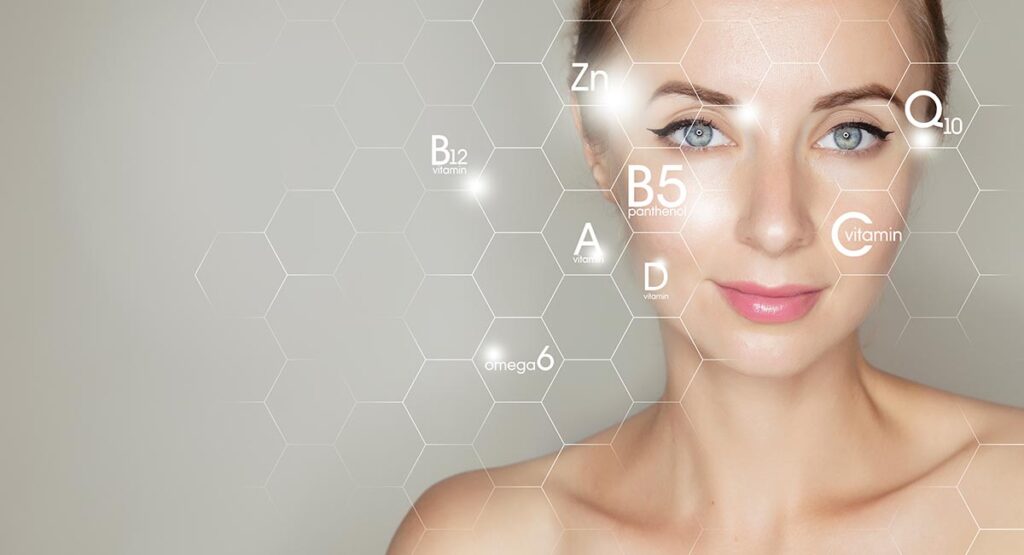Omega 3 Benefits For Healthy Looking Skin
A healthy diet is essential for maintaining a healthy lifestyle. A well-balanced diet will provide all the nutrients required to keep your body functioning correctly. Your skin needs them too. If you’re looking for ways to keep your skin glowing, plenty of natural remedies are available. One of them is omega-3 fatty acids.
Fish oils contain high levels of omega-3 fats. You should try to consume at least two servings of fish per week.
Beauty experts believe getting the right amount of essential fatty acids, particularly the omegas found in fish oil in your diet could be the secret weapon in your anti-ageing arsenal.
You may think that a blemish-free complexion is an impossible dream. Even if you just think your face looks dry and congested, it can sometimes be hard to know exactly where to start with such a baffling array of products on offer! Omega-3 fish oil benefits your skin and how could revolutionise your complexion. But before you shell out for yet another expensive miracle cream to tackle the problem from the outside, what if you had the option to feed your skin from the inside?
A healthy diet full of antioxidants will help keep you looking young. But eating lots of fruits and vegetables won’t give you glowing skin. You need to eat plenty of foods rich in omega-3 fatty acids too. These are essential fats that play an important role in maintaining healthy skin.
So can omega help your skin?
Beauty products are big business. We spend an average of £17 billion yearly on them in the UK alone. And while many of us are concerned about our skin, we’re also willing to spend a lot of money on creams, potions and treatments to keep it looking its best. Beauty experts believe getting the right amounts of essential fatty acids in your diet, especially those found in oily fish like salmon, tuna and mackerel, could help you fight against wrinkles. Omega-3s are thought to play a role in cell regeneration and skin repair, helping to reduce fine lines and wrinkles.
What is omega?
Omega 3s are essential fats in fish oil, flaxseed oil and walnuts. They help to reduce inflammation, prevent acne and even promote hair growth. Here’s everything you need to know about omega 3s and why you should consider adding them to your daily routine.
Omega-3s help reduces inflammation and protects against cardiovascular disease, cancer, depression, diabetes, obesity, and autoimmune diseases.
The science
Omega 3 is an important nutrient for healthy skin because it helps maintain the integrity of your cell membranes. Cell membranes are what separates our body from the environment. When cell membranes become damaged, we get wrinkles, dryness, and other signs of ageing. Eating foods rich in omega-3 will help keep your skin hydrated and supple.
Your body doesn’t produce omega-3 fatty acids. Instead, it needs them from dietary sources. Omega 3 fatty acids are essential for brain development, immune system function, and healthy skin, eyes, hair, and nails.
What foods contain omegas?
Fish oil is rich in omega-3 fatty acids, essential fats our bodies cannot produce on their own. Omega-3s are vital because they help our bodies function correctly. They also help reduce inflammation, which may lead to heart disease, arthritis, depression, diabetes, cancer, and other health problems. Some studies suggest that eating fish at least twice per week could lower your risk of cardiovascular disease. However, there are many different types of fish, and not all fish contain high levels of omega-3s, so you should talk to your doctor about what type of fish is best for you.
What are omega fatty acids, and what do they do for skin?
Omega 3 can help soften rough and dry skin and calm irritated skin. However, that’s not all! Recent research suggests that omega-3 fats protect against sunburn and skin cancer.
How do omegas interact with skin?
Omega 3 fatty acids keep your skin soft and reduce inflammation. Eating fish regularly will help you get enough Omega 3s to benefit your skin. Fish oils are found in oily fish like salmon, mackerel, sardines and herring. You can also get them from fortified eggs and dairy products.
What are the myths surrounding omega-fatty acids?
Fish oils are an important part of a healthy diet. Omega-3 fatty acids are essential for brain development, cell growth, and cardiovascular health. Fish oils are found in many foods, including salmon, tuna, mackerel, sardines, anchovies, herring, trout, and lake whitefish. However, not all types of fish are equal regarding omega-3 fats.
Some fish may contain higher concentrations of DHA and EPA than others. For example, wild-caught Alaskan salmon contains about twice as much omega-3 fat as farmed Atlantic salmon. And while both types of salmon are considered safe sources of omega-3s, the amount of mercury in wild-caught fish varies widely depending on location.
What is the best concentration for omega benefits for the skin?
Omega-3s help boost brain function, keep your heart healthy and reduce inflammation throughout your body. There’s no set recommendation for how many grams of omega-3 you should consume each day. However, health experts suggest adults get about 2 grams per day, or the amount found in two servings of fatty fish each week.
Omega benefits for skin
You can spend lots of money on the best skin care products and treatments, but if you’re not getting enough omega-3s in your diet, you may need to consider taking supplements. Omega 3s are essential fats that help keep our skin looking young and vibrant.
Subdue skin breakouts
Omega 3 can help reduce inflammation and ease skin conditions like acne. Research shows that taking fish oil supplements can reduce the severity of blemishes.
Dry skin and eczema
Eczematous skin conditions are prevalent in children. Fish oil may help reduce the severity of eczema symptoms in children. However, there isn’t enough evidence to say whether fish oil is helpful in adults. More studies are needed to determine if fish oil works for adult eczema patients.
Reduce sensitivity to sun damage
Omega-3 fatty acids have shown promise in helping reduce inflammation and prevent cancer.
Hydrate and smooth dry or irritated skin
Fatty acids are essential for maintaining skin health. They keep skin moisturised and protect against infection. Some types of omega-3 fatty acids also promote cell turnover and repair damaged tissue.
These benefits may explain why fish oil supplements are often recommended for treating eczema and psoriasis.
Adds elasticity and brightness
Dry hair needs moisture. When you’re not using shampoo, conditioner or other products, your hair will lose its natural oil. Omega 3 fatty acids found in fish oil can help restore essential nutrients to your hair. These nutrients promote healthy hair growth and prevent damage.
Hyperpigmentation
Hyperpigmentation describes dark spots on your skin that appear when you produce more pigment. Causes of hyperpigmentation include sun damage. Ageing. Medications that cause sun sensitivity. Fish oil could potentially help reduce pigmentation in several ways. Omega-3 helps reduce pigmentation by minimising wound infections and speeding up healing, which is helpful in cases of hyperpigmentation caused by skin trauma.
Lipid Metabolism in the Skin

Vitamins And Food Supplements. Close Up Of Beautiful Woman Opened Mouth Holding Fish Oil Pill In White Teeth. Smiling Girl Holding Capsule With Omega-3 Between Teeth. Healthy Diet Nutrition Concept
Fatty acids are important components of cell membranes and essential for cells’ proper functioning. Fatty acids are also precursors for many other molecules, including
- hormones
- neurotransmitters
- prostaglandins
- leukotrienes
- thromboxanes
- lipoxins.
Omega 6 and omega 3 polyunsaturated fatty acids (PUFAs) give rise to potent signalling compounds called eicosatrienoic and eicosapentaenoic acids, respectively. These metabolites are formed via cyclooxygenase and lipoxygenase pathways.
Topical application and oral supplementation effectively deliver EFAS to the skin and systemic circulations. Consumption of oils rich in omega-6 and omega -3 fatty acids can alter the epidermal layer’s fatty acid composition and eicosanoid content.
Lipid Metabolism in the Skin
Skin is metabolically active tissue. Fatty acids are essential components of cell membranes and are involved in many biological processes, including inflammation, apoptosis, and proliferation. The skin contains three types of cells: keratinocytes, melanocytes, and Langerhans. Keratinocytes from the outermost layer of the skin called the stratum corneum.
In addition to providing mechanical protection, keratinocytes produce and secrete proteins that regulate water loss through the skin. Melanocytes are pigment-producing cells that reside within the basal layer of the epidermis. Langerhans cells are antigen-presenting dendritic cells found in the upper layers of the dermis. All three cell types contain high levels of saturated fatty acids. The epidermis contains the highest concentration of saturated fatty acids, followed by the dermis, then the subcutaneous fat. Unsaturated fatty acids are present at lower concentrations throughout all tissues.
How to use fish oil
Fish oil is best taken orally. It has a strong taste and smell, so taking it topically isn’t always suitable. Taking capsules helps make fish oil easier to swallow. There is no set dose recommendation for fish oil. But the recommended daily intake (RDI) of EPA and DHA is about 250 mg per day.
These fatty acids are found in many foods, including salmon, tuna, mackerel, sardines, trout, herring, anchovies, and shrimp. Fish oil supplements are available in different forms, including capsules, liquids, tablets, and gummies. One cup of cooked salmon contains about 200 milligrams of omega-3 fatty acids, while a tablespoon of ground flaxseed provides about 30 milligrams. A typical dose of fish oil supplements ranges from 2,000 to 4,000 milligrams per day.
How does omega help with anti-ageing?
As we get older, our skin loses elasticity and becomes thinner. As a result, wrinkles form, and the skin begins to sag. To understand why this happens, we need to go back to when we were born. Our skin starts as a thin sheet of connective tissue called the stratum corneum. When we are born, this sheet is covered with dead skin cells. As we grow, the body replaces those dead cells with new ones. But as we age, the number of dead cells increases and the amount of collagen decreases. Collagen is what gives skin its strength and elasticity. So as we age, the skin gets weaker and less elastic. That’s why we lose our youthful glow and become more wrinkled.
It soothes the skin.
In addition to helping your heart, omega 3s can help keep your skin healthy. Omega 3 fatty acids are found in fish oil, nuts and seeds, and flaxseed. They can help reduce inflammation in your skin. As mentioned before, inflammation is believed to play a role in ageing, so taking them may slow down the effects of ageing.
It moisturises the skin.
Fish oil is an essential component of any skincare routine. Omega 3 fatty acids help create a protective layer on our skin, keeping us hydrated and healthy. Fish oils also boost collagen production, making them great for improving elasticity and reducing wrinkles.
Fish oil helps your skin stay healthy because it contains essential fatty acids, including EPA and DHA. These fats are necessary for cell growth and repair and help keep your skin hydrated.









